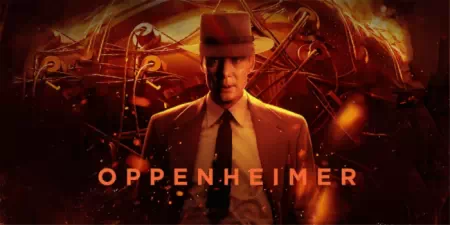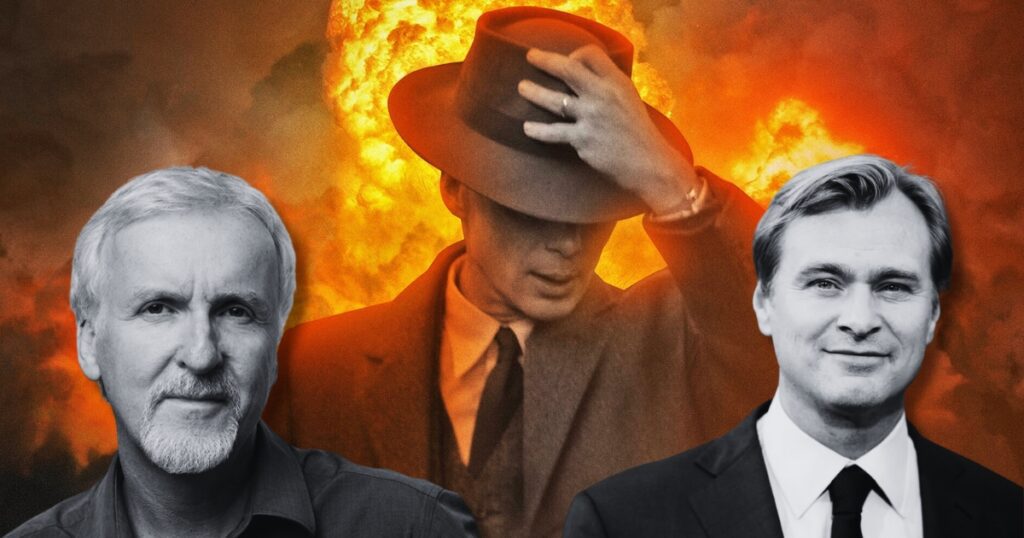As director James Cameron continues to work on Avatar: Fire and Ash, he recently shared his candid thoughts on Christopher Nolan’s film Oppenheimer. Here’s what he had to say.
James Cameron’s Constructive Critique of Oppenheimer
James Cameron is quite the busy filmmaker. Currently immersed in the production of the third installment of his sci-fi saga Avatar, set to hit theaters at the end of 2025, the Canadian director is juggling multiple projects. Recently, he announced plans for two exciting films: an adaptation of a dark fantasy novel by renowned author Joe Abercrombie and a project based on The Ghosts of Hiroshima by Charles Pellegrino, which tells the true story of Tsutomu Yamaguchi, the only person known to have survived both atomic bombings in Hiroshima and Nagasaki in August 1945.

Given the scale and subject matter of Cameron’s upcoming films, he inevitably finds himself compared to Christopher Nolan’s Oppenheimer, which has won seven Academy Awards, including Best Picture, Best Director, and Best Actor. In a recent interview with the American outlet Deadline, Cameron discussed this comparison and shared his thoughts on Nolan’s film.
I love the direction, but I felt he made a moral evasiveness. It’s not as if Oppenheimer ignored the consequences. I don’t like to criticize another filmmaker’s work, but there’s only a brief scene in the film that shows charred bodies; afterwards, the film illustrates how affected Oppenheimer was by this event. But I felt he was dodging the subject. I don’t know if it was the studio or Chris’s decision not to confront such a sensitive issue, but personally, I want to dive straight into that sensitive topic. I must be a bit of an idiot.
Cameron criticizes Nolan for not addressing the complex and ongoing implications of the atomic bombings. It’s worth noting that Tsutomu Yamaguchi, like all survivors, is classified as a hibakusha. Beyond health repercussions, hibakusha have faced tragic isolation and psychological trauma, first from American authorities until the San Francisco Treaty in 1951, and later from Japanese authorities and their own communities.
Exploring the Legacy of Hibakusha
Several significant works have tackled the painful narratives of hibakusha. Notable examples include the autobiographical manga Gen of Hiroshima by Keiji Nakazawa (1973-1985), the film Black Rain directed by Shōhei Imamura (1989), and the essay Hiroshima Notes by Kenzaburō Ōe (1965), the second Japanese laureate of the Nobel Prize in Literature after Yasunari Kawabata.
As Cameron gears up to explore the repercussions of the atomic bombings in his upcoming projects, audiences are eager to see how he will portray this significant historical issue. What are your thoughts on his criticisms of Oppenheimer?

Meet William, a proud Bethel University alumnus with a fervent passion for lifestyle and culture topics. His keen interest doesn’t stop there; he’s also deeply engrossed in current events of all kinds. William dedicates himself wholeheartedly to this site, thriving on the collaborative energy he shares with Suzanne, his long-standing partner in crime.
Having navigated their university courses side by side for years, their teamwork on the site is nothing short of dynamic. Together, they bring a unique blend of insights, proving that two heads are indeed better than one in delivering compelling content.













